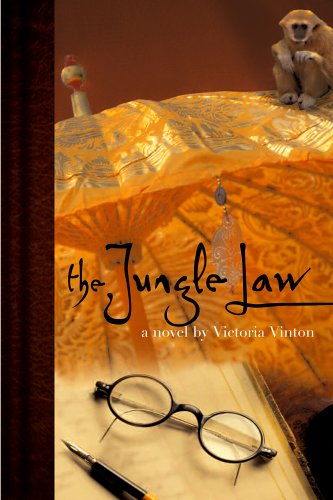The Jungle Law
Rudyard Kipling is most famous for his Jungle Books, a series of stories that are deeply rooted in Kipling’s childhood in Bombay. In this novel, Vinton mixes fact with fiction as she attempts to trace the development of these stories in the context of a snippet of Kipling’s life. In 1892, Kipling and his new, pregnant wife leave behind the literary high life in London and settle in rural Vermont, where Kipling hopes to build a sanctuary conducive to his writing. Down the road lives the Connolly family: drunken, bitter father Jack, hardworking mother Addie, and their dreamy eleven-year-old son, Joe. Joe is drawn to Kipling and his stories, but Jack fears losing him to Kipling, whom he despises as a representation of the aristocracy.
Vinton skillfully delves into the inner recesses of her characters, aided by flashbacks and an adept use of third person narration that allows examination of each character’s point of view. Unfortunately, what this delving uncovers is not particularly appealing. Kipling is exuberant and childlike, but egocentric to an extreme, using Joe as a foil for his stories and casting him off abruptly when he no longer needs him. Kipling’s wife, Caroline, is a pretentious, overbearing woman who is even more selfish than her husband. Though Vinton provides a partial explanation for Jack’s drunken abusiveness in the form of a tragic childhood and series of subsequent disappointments, the only truly sympathetic characters are Joe and his loving, much put-upon mother. The novel’s graceful prose and meandering tone add a sense of lyricism but at the same time slow the story. Overall, this well-written novel works as a complex look into the way imagination and reality intertwine to form literary greatness, but its glimpses into the character’s inner selves are less than engaging.










